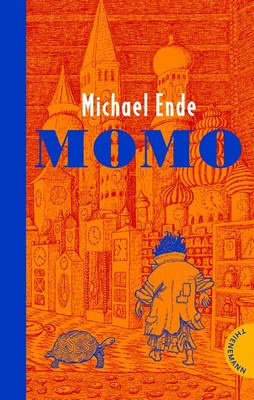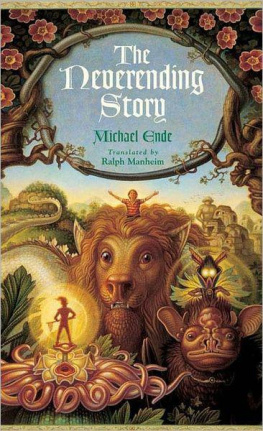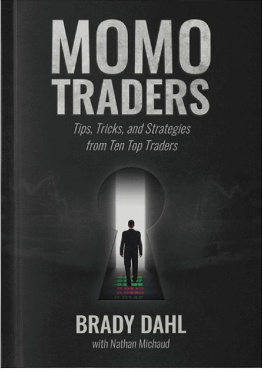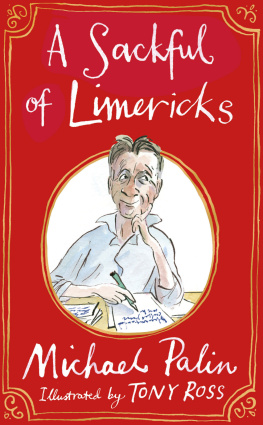Michael Ende - Momo
Here you can read online Michael Ende - Momo full text of the book (entire story) in english for free. Download pdf and epub, get meaning, cover and reviews about this ebook. year: 2009, publisher: Puffin, genre: Art. Description of the work, (preface) as well as reviews are available. Best literature library LitArk.com created for fans of good reading and offers a wide selection of genres:
Romance novel
Science fiction
Adventure
Detective
Science
History
Home and family
Prose
Art
Politics
Computer
Non-fiction
Religion
Business
Children
Humor
Choose a favorite category and find really read worthwhile books. Enjoy immersion in the world of imagination, feel the emotions of the characters or learn something new for yourself, make an fascinating discovery.
- Book:Momo
- Author:
- Publisher:Puffin
- Genre:
- Year:2009
- Rating:5 / 5
- Favourites:Add to favourites
- Your mark:
- 100
- 1
- 2
- 3
- 4
- 5
Momo: summary, description and annotation
We offer to read an annotation, description, summary or preface (depends on what the author of the book "Momo" wrote himself). If you haven't found the necessary information about the book — write in the comments, we will try to find it.
Momo — read online for free the complete book (whole text) full work
Below is the text of the book, divided by pages. System saving the place of the last page read, allows you to conveniently read the book "Momo" online for free, without having to search again every time where you left off. Put a bookmark, and you can go to the page where you finished reading at any time.
Font size:
Interval:
Bookmark:
by Michael Ende
Translated by J. Maxwell Brownjohn
a.b.e-book v3.0 / Notes at EOF
Back Cover:
A FABLE FOR THE MODERN WORLD
This is the enthralling tale of Momo, an orphan girl who has made her home in a ruined amphitheater on the outskirts of a bustling, nameless city. Momo has a unique gift in her presence troubles become less burdensome, conflicts are resolved, and imaginations take flight.
But Momos world is threatened when mysterious little gray men appear, promising wealth and success to people who hurry through life now, saving time and depositing it in a Timesaving Bank.
Realizing that all that is precious life itself is at risk, Momo sets out on a perilous mission to defeat the men in gray.
This is truly a story for our times, an imaginitive fantasy and a tale of suspense with far-reaching implications about the quality of life today.
A sophisticated fairy tale. The New York Times Book Review
Here is a story so ingenious in its conception, so powerful in production that its message can safely slip unnoticed into the mind to linger after the splendid images begin to fade. The Times LiterarySuppliment
PENGUIN BOOKS
Viking Penguin Inc., 40 West 23rd Street,
New Yorik, New York 10010, U.S.A.
P enguin Books Ltd, Harmondsworth, Middlesex, England
P enguin Books Australia Ltd, Ringwood, Victoria, Australia
P enguin Books Canada Limited, 2801 John Street,
Markham, Ontario, Canada L3R 1B4
P enguin Books (N.Z.) Ltd, 182-190 Wairau Road,
Auckland 10, New Zealand
First published in West Germany under the title M omo b y K. Thienemanges Verlag. Stuttgart 1973
First English translation published in Great Britain under the title The Gray Gentlemen by Burke Books Publishing Company Limited 1974
This English translation first published in the United States of America under the title Momo by Doubleday & Company, Inc., 1985
Published in Penguin Books by arrangement with
Doubleday & Company, Inc., 1986
Copyright Doubleday & Company, Inc., and Penguin Books Ltd., 1984
All rights reserved
Printed in the United States of America by
R. R. Donnelley & Sons Company, Harrisonburg, Virginia
Set in Baskerville
Except in the United States of America, this book is sold subject to the condition that it shall not, by way of trade or otherwise, be lent, re-sold, hired out, or otherwise circulated without the publishers prior consent in any form of binding or cover other than that in which it is published and without a similar condition including this condition being imposed on the subsequent purchaser
Twinkle, twinkle, little star.
How I wonder what you are!
Up above the world so high,
Like a diamond in the sky!
Jane Taylor (1783-1827)
ONE
Long, long ago, when people spoke languages quite different from our own, many fine, big cities already existed in the sunny lands of the world. There were towering palaces inhabited by kings and emperors; there were broad streets, narrow alleyways and winding lanes; there were sumptuous temples filled with idols of gold and marble; there were busy markets selling wares from all over the world; and there were handsome, spacious squares where people gathered to discuss the latest news and make speeches or listen to them. Last but not least, there were theatres or, more properly, amphitheatres.
An amphitheater resembled a modern circus, except that it was built entirely of stone. Seats for spectators were arranged in tiers, one above the other, like steps lining the crater of a man-made volcano. Many such buildings were circular, others semicircular, others oval.
Some amphitheatres were as big as football stadiums, others could hold no more than a few hundred people. Some were resplendent with columns and statues, others plain and unadorned. Having no roofs, amphitheatres were open to the sky. This was why, in the more luxurious ones, spectators were shielded from the heat of the sun or from sudden downpours by gold-embroidered awnings suspended above their seats. In simple amphitheatres, mats woven of rushes or straw served the same purpose. In short, people made their amphitheatres as simple or luxurious as they could afford just as long as they had one, for our ancestors were enthusiastic playgoers.
Whenever they saw exciting or amusing incidents acted out on stage, they felt as if these make-believe happenings were more real, in some mysterious way, than their own humdrum lives, and they loved to feast their eyes and ears on this kind of reality.
Thousands of years have passed since then. The great cities of long ago lie in ruins, together with their temples and palaces. Wind and rain, heat and cold have worn away and eaten into the stonework.
Ruins are all that remain of the amphitheatres, too. Crickets now inhabit their crumbling walls, singing a monotonous song that sounds like the earth breathing in its sleep.
A few of these ancient cities have survived to the present day, however. Life there has changed, of course. People ride around in cars and buses, have telephones and electric lights. But here and there among the modern buildings one can still find a column or two, an archway, a stretch of wall, or even an amphitheater dating from olden times.
It was in a city of this kind that the story of Momo took place.
On the southern outskirts of the city, where the fields began and the houses became shabbier and more tumbledown, the ruins of a small amphitheater lay hidden in a clump of pine trees. It had never been a grand place, even in the old days, just a place of entertainment for poor folk. When Momo arrived on the scene, the ruined amphitheater had been almost forgotten. Its existence was known to a few professors of archaeology, but they took no further interest in it because there was nothing more to be unearthed there. It wasnt an attraction to be compared with others in the city, either, so the few stray tourists or sightseers who visited it from time to time merely clambered around on the grass-grown tiers of seats, made a lot of noise, took a couple of snapshots, and went away again. Then silence returned to the stone arena and the crickets started on the next verse of their interminable, unchanging song.
The strange, round building was really known only to the folk who lived in the immediate neighbourhood. They grazed their goats there, their children played ball on what had once been the central stage, and sweethearts would sometimes meet there in the evenings.
One day however, word went around that someone had moved into the ruins. It was a child a girl, most likely, though this was hard to say because she wore such funny clothes. The newcomers name was Momo.
Aside from being rather odd, Momos personal appearance might well have shocked anyone who set store by looking clean and tidy. She was so small and thin that, with the best will in the world, no one could have told her age. Her unruly mop of jet-black hair looked as if it had never seen a comb or a pair of scissors. She had very big, beautiful eyes as black as her hair, and feet of almost the same colour, for she nearly always went around barefoot. Although she sometimes wore shoes in the wintertime, the only shoes she had werent a pair, and besides, they were far too big for her. This was because Momo owned nothing apart from what she had found lying around or had been given. Her ankle-length dress was a mass of patches of different colours, and over it she wore a mans jacket, also far too big for her, with the sleeves turned up at the wrist. Momo had decided against cutting them off because she wisely reflected that she was still growing, and goodness only knew if she would ever find another jacket as useful as this one, with all its many pockets.
Next pageFont size:
Interval:
Bookmark:
Similar books «Momo»
Look at similar books to Momo. We have selected literature similar in name and meaning in the hope of providing readers with more options to find new, interesting, not yet read works.
Discussion, reviews of the book Momo and just readers' own opinions. Leave your comments, write what you think about the work, its meaning or the main characters. Specify what exactly you liked and what you didn't like, and why you think so.











